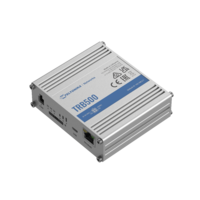TRB Gateways: Difference between revisions
No edit summary |
No edit summary |
||
| (2 intermediate revisions by the same user not shown) | |||
| Line 13: | Line 13: | ||
<li>[[TRB143]]</li> | <li>[[TRB143]]</li> | ||
<li>[[TRB145]]</li> | <li>[[TRB145]]</li> | ||
<li>[[TRB160]]</li> | |||
</ul> | </ul> | ||
</li> | </li> | ||
<li><b>TRB2</b> | <li><b>TRB2</b> | ||
<ul> | <ul> | ||
<li>[[TRB246]]</li> | <li>[[TRB246]]</li> | ||
<li>[[ | <li>[[TRB256]]</li> | ||
</ul> | </ul> | ||
</li> | </li> | ||
Latest revision as of 07:23, 2 October 2024
Main Page > TRB GatewaysTRB is a series of cellular IoT gateways designed for advanced industrial solutions, where a single device requires connectivity. Depending on the model, TRB devices come with either an Ethernet port, RS232, RS485, an Input/Output connector block or the combination of all.
Here you will find technical documentations links for all TRB series devices. If you can't find what you're looking for, try using the search bar located at the top-right side of the page, register your question on our Crowd Support forum or suggest an edit to our technical support team.
 |
|



